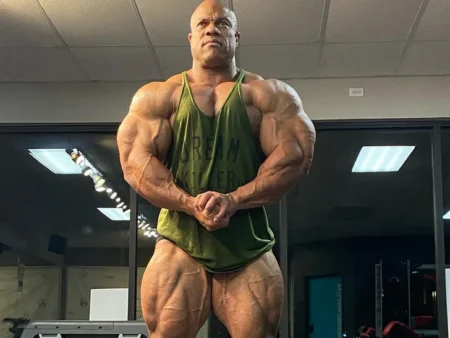The University of Southern California (USC) women’s basketball team was riding high in 2025, propelled by the electrifying talent of JuJu Watkins, a name synonymous with celebrity-level stardom in college hoops. But on March 25, 2025, during a second-round NCAA Tournament clash against Mississippi State at the Galen Center, tragedy struck. Watkins, an Associated Press All-American and a frontrunner for national player of the year, suffered a season-ending ACL tear in her right knee—an injury that silenced the crowd, rattled her teammates, and sent shockwaves through the world of college basketball and pop culture sports.
ESPN broke the news first, reporting that the injury occurred just five minutes into USC’s dominating victory. Watkins collapsed in agony, clutching her knee, and was carried off the court as fans watched in stunned silence. A team spokesperson later confirmed the grim prognosis: Watkins would require season-ending surgery followed by a grueling rehabilitation process. For a player who averaged 24.6 points, 7.0 rebounds, and 3.5 assists per game while leading the Trojans to a 30-3 record and a No. 1 seed in the NCAA Tournament, this was a devastating blow—not just to her team, but to the legion of fans who’d crowned her a rising sports icon.
The Emotional Fallout: A Team and a City in Mourning
The Galen Center, typically a cauldron of roaring support, fell eerily quiet as Watkins writhed in pain. The severity of the moment was palpable—USC faithful understood that their star, a cornerstone of the program’s resurgence, might not return this season. Head coach Lindsay Gottlieb didn’t shy away from the raw emotion of the scene. “I’d be lying if I told you that I wasn’t rattled seeing JuJu on the floor crying,” she admitted post-game. “This is a human game, and I tried my best to be what the team needed, but internally, it’s a lot.”
Gottlieb’s words resonated deeply with fans and analysts alike. Watkins wasn’t just a player; she was the heartbeat of USC’s 2025 campaign—a campaign that had already cemented her as one of the most exciting talents in women’s college basketball. Her injury didn’t just threaten the Trojans’ Sweet Sixteen aspirations; it ripped an emotional hole through a team and a city that had rallied behind her meteoric rise.
Kiki Iriafen Steps Up: A Hero Emerges in Watkins’ Absence
Despite the heartbreak, the Trojans refused to crumble. With Watkins sidelined, senior forward Kiki Iriafen delivered a career-defining performance, dropping a season-high 36 points on an astonishing 16-of-22 shooting. Her heroics propelled USC past Mississippi State and into the Sweet Sixteen, keeping their March Madness dreams alive. “We didn’t want to let her down,” Iriafen said after the game, her voice thick with determination. “We just want to keep dancing, so whatever it takes is what I wanted to do. It shows our toughness.”
Iriafen’s breakout moment wasn’t just a testament to her skill—it was a rallying cry for a team determined to honor Watkins’ legacy. Social media erupted with praise, with fans and pundits dubbing her the “unsung hero” of USC’s postseason run. Hashtags like #KikiStepsUp and #TrojanTough trended on X, amplifying the game’s viral shareability and cementing its place in pop culture sports chatter.
The Crowd’s Fury: Boos Rain Down on Mississippi State
The injury didn’t just galvanize the Trojans—it ignited the USC faithful. As Mississippi State took possession throughout the game, the Galen Center crowd unleashed a torrent of boos, their frustration boiling over. Even the Bulldogs’ cheerleaders weren’t spared, drawing jeers during their halftime routine. “You can’t tell me that the energy of the crowd—how angry they were with the other team and how much they were for our team—isn’t about what JuJu has given to this arena, to this program, to this city,” Gottlieb reflected.
This visceral reaction underscored Watkins’ outsized impact. In just one season, the 19-year-old phenom had transformed USC into a college basketball powerhouse, drawing sellout crowds and sparking a sports culture renaissance in Los Angeles. Her injury felt personal to fans, a betrayal of the promise she’d brought to the Trojans’ hardwood.
JuJu Watkins: A Historic Season Cut Short
Before her injury, Watkins was authoring one of the most unforgettable seasons in USC history. Her stat line—24.6 points, 7.0 rebounds, and 3.5 assists per game—only scratched the surface of her dominance. She led the Trojans to a 30-3 record, securing the fourth No. 1 seed in the 2025 NCAA Tournament and earning accolades as an All-American. Analysts pegged her as a lock for national player of the year, with some even whispering about her potential to leap to the WNBA after just one collegiate season.
Born and raised in Los Angeles, Watkins was more than a star athlete—she was a hometown hero. Her electrifying dunks, pinpoint passes, and relentless energy made her a social media sensation, with highlight reels racking up millions of views on platforms like TikTok and YouTube. Off the court, her charisma and authenticity endeared her to fans, positioning her as a Gen Z sports icon whose influence transcended basketball.
The Road Ahead: Surgery, Rehab, and a Team’s Resolve
Watkins now faces a long road to recovery. ACL injuries typically require 6–12 months of rehabilitation, meaning her return could stretch into the 2025–2026 season—or beyond, depending on her progress. For a player known for her explosive athleticism, the physical and mental toll of this setback cannot be overstated. Yet, if her on-court tenacity is any indication, Watkins will attack rehab with the same ferocity that made her a household name.
Meanwhile, USC presses forward without their star. Gottlieb remains defiant: “We know we’ve got no punks in our locker room. This team rallied for JuJu, they rallied for each other.” The Trojans’ Sweet Sixteen matchup looms as a proving ground—a chance to show the world that their spirit can’t be broken, even in the face of adversity.
Why This Story Matters: A Pop Culture Moment
Watkins’ injury isn’t just a sports story—it’s a pop culture phenomenon. Her rise had already blurred the lines between athletics and entertainment, drawing comparisons to figures like Caitlin Clark and Angel Reese, whose own NCAA exploits have dominated headlines. Her absence leaves a void in the women’s basketball narrative, but it also opens the door for new stars like Iriafen to shine.
For fans, this saga is a rollercoaster of emotions—shock, grief, and hope all rolled into one. It’s the kind of drama that fuels watercooler debates, X threads, and podcast deep dives. Will USC keep dancing without Watkins? Can Iriafen carry the torch? And what does this mean for Watkins’ future in the WNBA? These questions will keep the entertainment news cycle buzzing for weeks.
Final Thoughts: A Legacy in the Making
JuJu Watkins’ 2025 season may have ended in heartbreak, but her story is far from over. Her injury is a gut punch to USC’s championship hopes, yet it’s also a testament to the Trojans’ resilience. As Kiki Iriafen and her teammates march into the Sweet Sixteen, they carry Watkins’ spirit with them—a reminder that even in defeat, legends are born.
Stay tuned for more celebrity sports updates, NCAA Tournament drama, and exclusive entertainment insights as this unforgettable season unfolds. Share your thoughts below—how far can USC go without their superstar?








